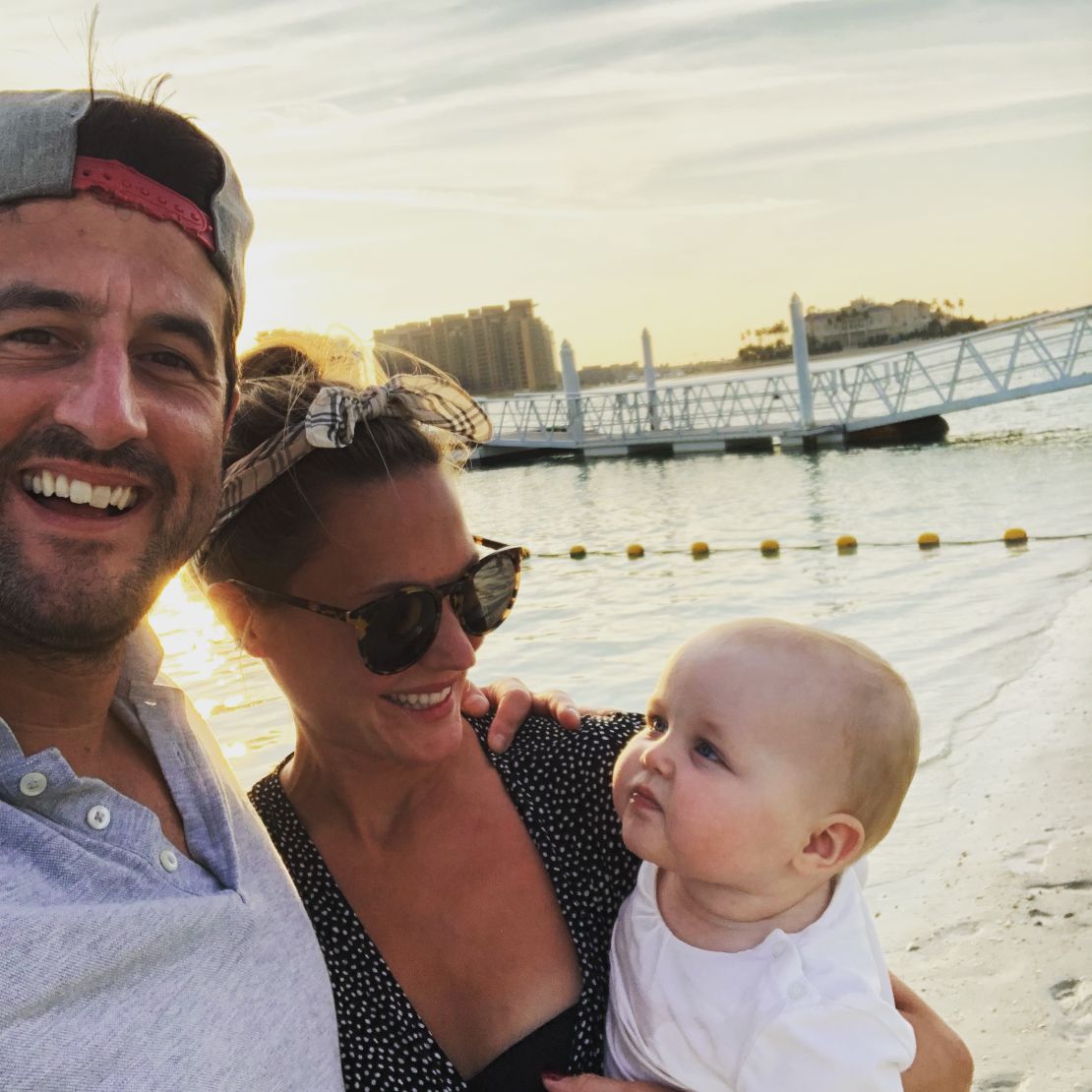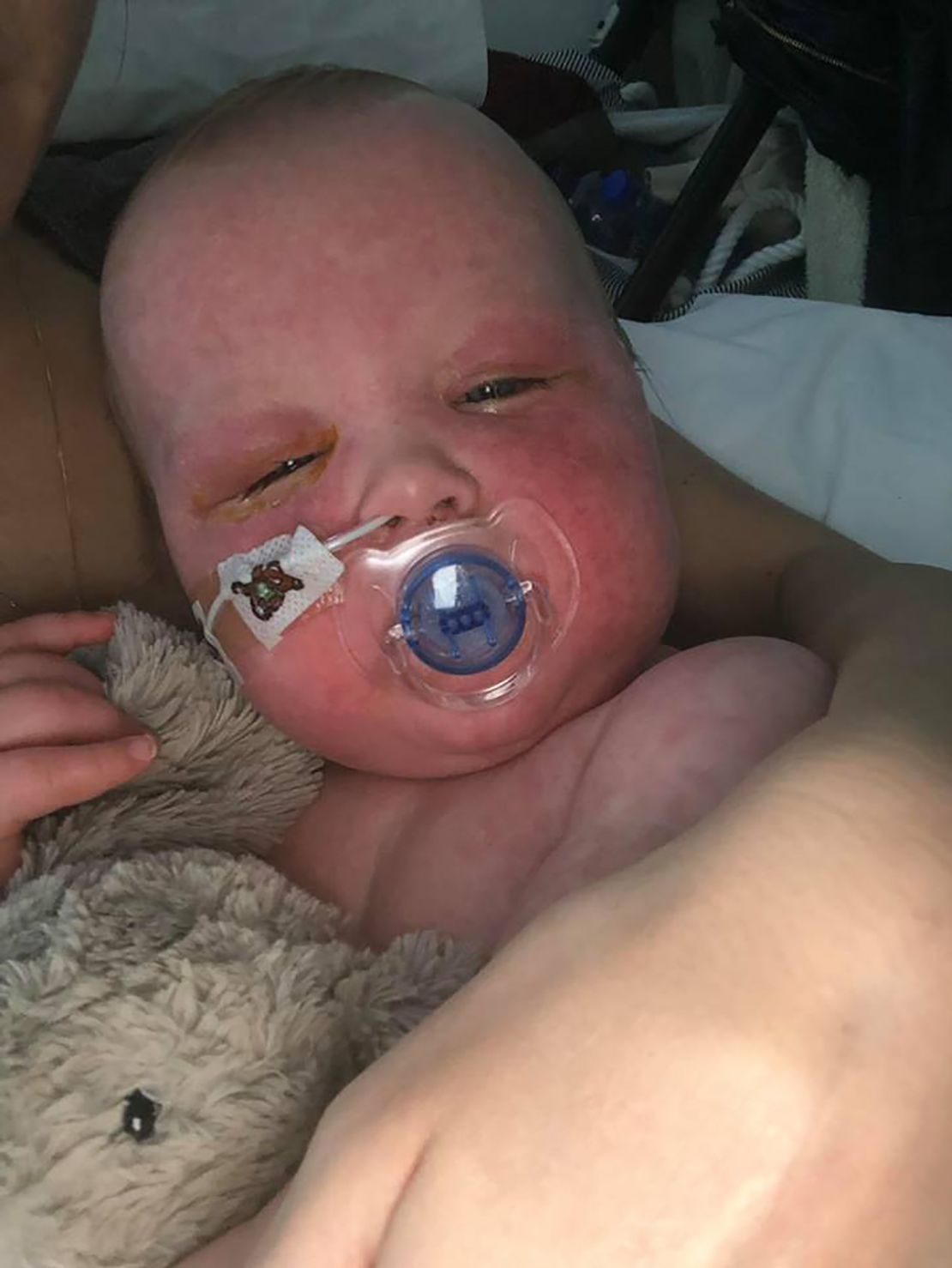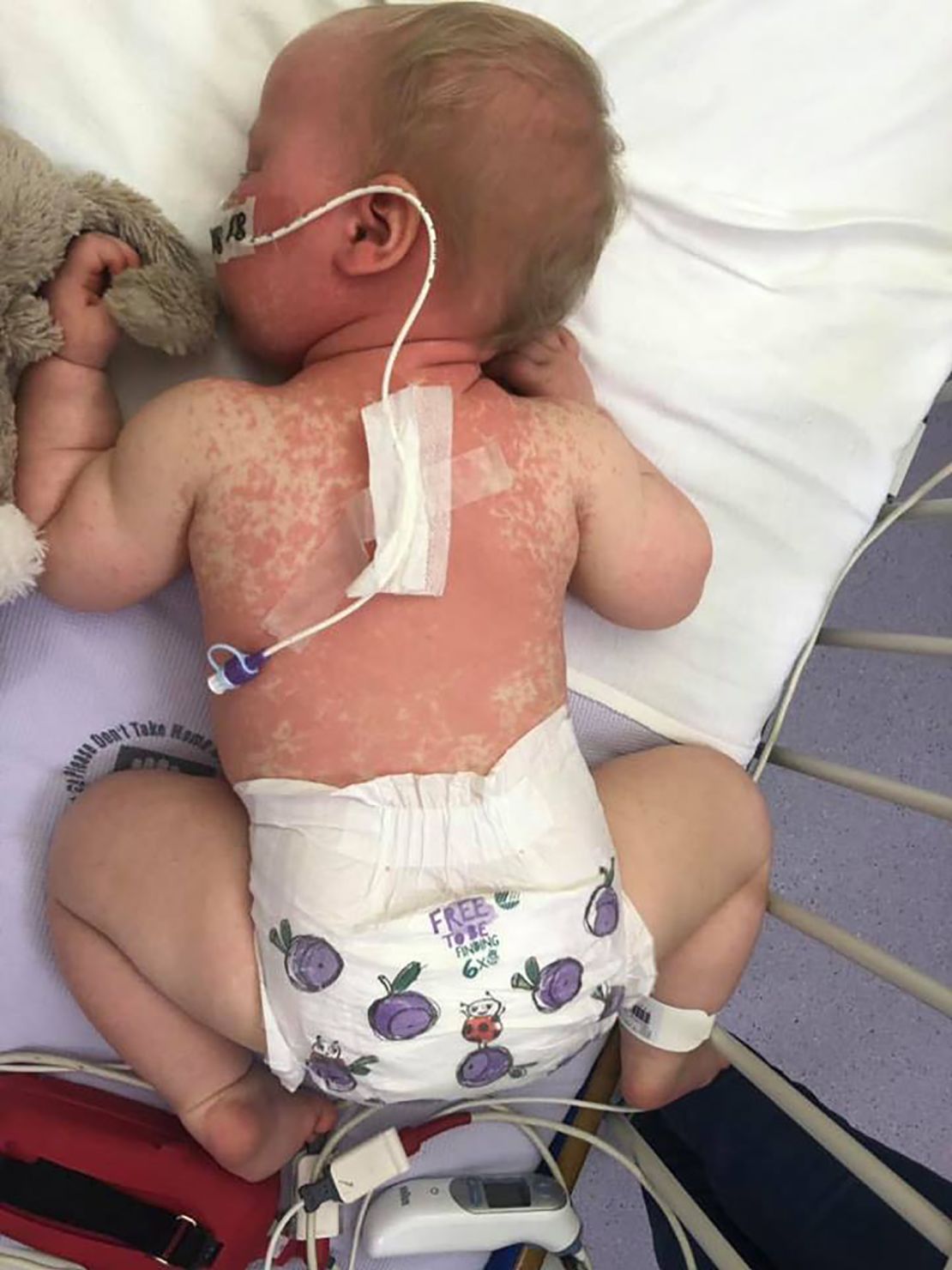Like all people who believe in facts and science, Jilly Moss is incredulous when she hears anti-vaxers say that measles is no big deal.
Moss has a particularly personal perspective: Her baby ended up in the hospital last month because of the virus.
Alba, who was 11 months old at the time, had a fever that soared over 107 degrees Fahrenheit. Her eyes were swollen shut for days, and doctors had to give her medicine to prevent her from going blind. She couldn’t eat or drink and had so much trouble breathing, doctors had to put her on oxygen.
And the doctors, since they’d never seen measles before, misdiagnosed her repeatedly, sending her home, where she became sicker and sicker.
At one point, she became totally unresponsive. Her parents thought they might lose her.
“She suffered so much and was so brave,” Moss said.
Like all babies under age 1, Alba was too young to get her first measles vaccine. Now, her mother wants the world to know what measles can do to a healthy infant.
“I think it’s important that you know I’m not one of these people who are crazy pro-vaccine and is saying ‘you must do this’ and is throwing it down people’s throats,” Moss said. “All I want to do is educate people because we as parents did not understand how sick measles could make our baby.”
Moss, who stays at home with Alba, and her husband, Richard, a global brand manager for a software company, live in London. They’ll never know how their daughter contracted measles.
There have been hundreds of measles cases in London since October, mostly in the northeast part of the city, according to Dr. Anita Bell, health protection consultant for Public Health England.
The Mosses live in southwest London, far from that outbreak, but measles is one of the most contagious diseases.

The long road to a diagnosis
After developing a high fever, Alba was rushed by ambulance to the hospital on March 24. Doctors diagnosed her with viral tonsillitis and sent her home.
Then, on April 2, a rash appeared on the back of her neck, and her eyes grew red.
Alba’s nanny, grandmother and great-grandmother knew exactly what it was. They had all seen measles firsthand.
But many doctors have not. The vaccine, introduced in the 1960s, dramatically reduced the number of measles cases worldwide. The disease was declared eliminated from the United States in 2000 and from Britain in 2016.
Armed with the measles “diagnosis” from Alba’s nanny, grandmother and great-grandmother, her parents took her back to the doctor. But he said her rash and red eyes were because of the tonsillitis and sent her home.
Three days later, on April 5, Alba’s parents brought her to a different doctor. That doctor also said it wasn’t measles and sent Alba home for a third time.
“My husband sat up with her all night because he was worried that something just wasn’t right,” Moss said.
The next day, Alba didn’t get better, and she hadn’t had anything to eat or drink in several days. Her parents brought her to the emergency room at Chelsea and Westminster Hospital, where she was admitted and diagnosed with measles.

‘I’ve never felt fear like that’
The next eight days were a nightmare.
“Her whole body was swollen and lifeless. She didn’t make a sound,” Moss remembered. “I’ve never felt fear like that.”
At first, doctors thought Alba might need to go to the intensive care unit, but oxygen and breathing treatments stabilized her.
Her eyes were swollen shut. Moss said. Doses of vitamin A were given so she wouldn’t go blind, a complication of measles.
To rule out meningitis and other diseases, Alba had to endure a painful lumbar puncture. The procedure, also known as a spinal tap, involves inserting a needle into the spine to draw out fluid.
Her mother says the lowest moment was when Alba became unresponsive as she was being transported to another room to have a brain scan. Doctors told her parents that her little body was so fragile, she couldn’t handle being moved from room to room.
Moss said she and her husband never thought about taking photos of their sick baby, but a doctor suggested that photos would show how sick a child can get from measles.
“He said to post them on social media so people will be aware of just how scary this virus can be,” Moss said.
Alba was discharged from the hospital after eight days. Today, nearly a month after her diagnosis, she’s still weak, sleepy and prone to coughing fits.
“She’s still not 100 percent, and it’s going to take her a while to get back to where she was before,” her mother said.

Mom strong despite Facebook backlash
After Alba left the hospital, her mother described her illness in a Facebook post.
“Get your children vaccinated,” she wrote.
The inevitable backlash from anti-vaxers followed.
“They said I was a bad mother – that if I had just breastfed longer, she wouldn’t have gotten measles. They said the photos of Alba were fake, that I’d made her up. They said I was an actress and getting paid,” Moss said. “Some of the comments have been absolutely disgusting, and they’ve come from other parents, other mamas.”
She knows that even prominent people are capable of denying science.
In February, Darla Shine wrote on Twitter that childhood diseases such as measles “keep you healthy.”
At the time, Shine’s husband, Bill Shine, was the White House communications chief. He now serves as a senior adviser for President Donald Trump’s re-election campaign.
“I had the #Measles #Mumps #ChickenPox as a child and so did every kid I knew - Sadly my kids had #MMR so they will never have the life long natural immunity I have,” Shine tweeted, adding, “Come breathe on me!”
Moss said Shine is failing to recognize that even though she might have been fine after measles, others are not. After her Facebook post, Moss says, she heard from parents who lost their children to the virus or became blind or deaf.
“I think it would be good for someone in this kind of power with so many followers to read up on the benefits of the [vaccine],” Moss wrote to CNN. “[Shine] could help to spread awareness of the reasons why the vaccine was introduced in the first place.”
Get CNN Health's weekly newsletter
Sign up here to get The Results Are In with Dr. Sanjay Gupta every Tuesday from the CNN Health team.
Last week, Moss posted another message on Facebook.
“To all of the people who are doubting me as a mother and a person [and] in general spreading lies that this is fake news – your comments are washing over me,” she wrote. “Our lives are full of amazing support from our loved ones and complete strangers from across the globe. You can think and say what you want but none of it matters. This is our story and I will continue to share it to raise awareness of just how scary this can be. For parents out there and for my brave brave Alba.”







